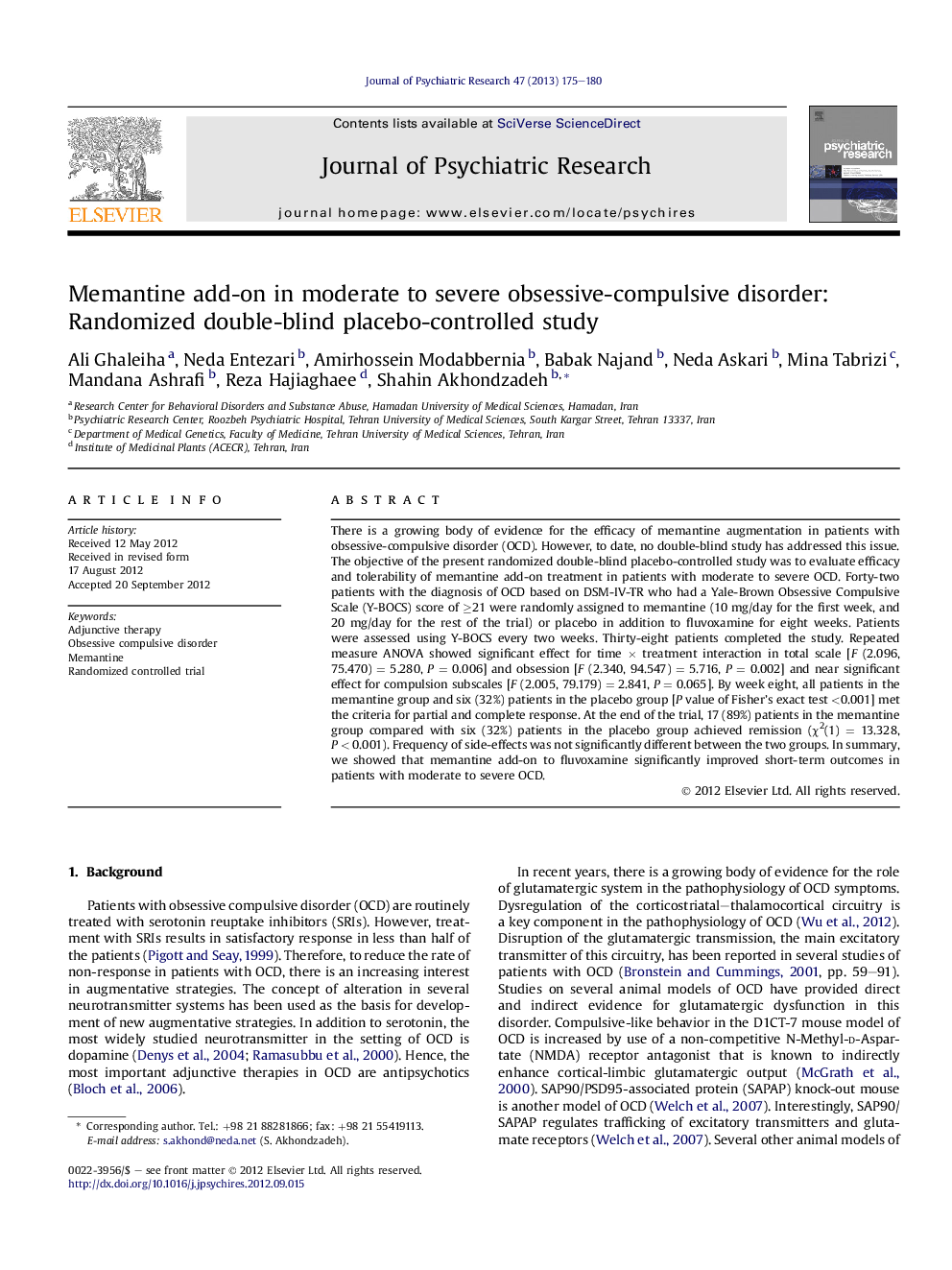| Article ID | Journal | Published Year | Pages | File Type |
|---|---|---|---|---|
| 10302492 | Journal of Psychiatric Research | 2013 | 6 Pages |
Abstract
There is a growing body of evidence for the efficacy of memantine augmentation in patients with obsessive-compulsive disorder (OCD). However, to date, no double-blind study has addressed this issue. The objective of the present randomized double-blind placebo-controlled study was to evaluate efficacy and tolerability of memantine add-on treatment in patients with moderate to severe OCD. Forty-two patients with the diagnosis of OCD based on DSM-IV-TR who had a Yale-Brown Obsessive Compulsive Scale (Y-BOCS) score of â¥21 were randomly assigned to memantine (10 mg/day for the first week, and 20 mg/day for the rest of the trial) or placebo in addition to fluvoxamine for eight weeks. Patients were assessed using Y-BOCS every two weeks. Thirty-eight patients completed the study. Repeated measure ANOVA showed significant effect for time Ã treatment interaction in total scale [F (2.096, 75.470) = 5.280, P = 0.006] and obsession [F (2.340, 94.547) = 5.716, P = 0.002] and near significant effect for compulsion subscales [F (2.005, 79.179) = 2.841, P = 0.065]. By week eight, all patients in the memantine group and six (32%) patients in the placebo group [P value of Fisher's exact test <0.001] met the criteria for partial and complete response. At the end of the trial, 17 (89%) patients in the memantine group compared with six (32%) patients in the placebo group achieved remission (Ï2(1) = 13.328, P < 0.001). Frequency of side-effects was not significantly different between the two groups. In summary, we showed that memantine add-on to fluvoxamine significantly improved short-term outcomes in patients with moderate to severe OCD.
Related Topics
Life Sciences
Neuroscience
Biological Psychiatry
Authors
Ali Ghaleiha, Neda Entezari, Amirhossein Modabbernia, Babak Najand, Neda Askari, Mina Tabrizi, Mandana Ashrafi, Reza Hajiaghaee, Shahin Akhondzadeh,
